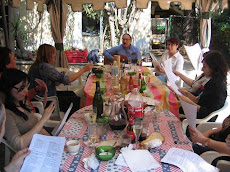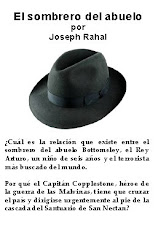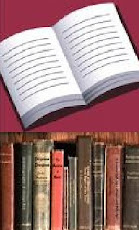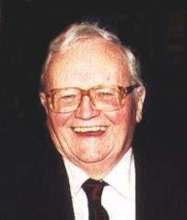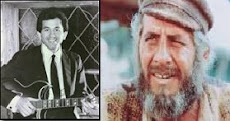Asking questions is a natural part of any conversation, whether it's social or business. What shampoo do you use? Have you met the new manager? When's the meeting? etc. However, it really is surprising to see students at ALL LEVELS continuing to make mistakes in this area. So, let's just look at a few rules.
IN GENERAL, a question starts with a question word (when we want information) or an auxilliary verb (when we want confirmation, i.e. yes or no).
QUESTION WORDS - WHAT, WHERE, WHEN, WHO, WHICH, WHY, WHOSE, HOW.
Very often, these question words are accompanied by other words that complete the information we require. For example: WHAT COLOUR, HOW MUCH, HOW MANY, WHICH ONE, HOW OFTEN, WHOSE CAR,ETC..
AUXILLIARY VERBS - AM, IS, ARE, WAS, WERE, HAVE, HAS, HAD, DO, DOES, DID, plus the MODALS: CAN, COULD, MAY, MIGHT, WILL, WOULD, SHALL, SHOULD, MUST, (and a few more complicated verbs, like ought to and need, which can act as auxilliary verbs). Here are some examples: ARE YOU....? IS THE NEW MANAGER...? CAN WE GO...? DID THE MEETING...? MUST WE...?
The BASIC order of a question is as follows:
For questions requesting information -
QUESTION WORD (INCLUDING ANY ADDITIONAL INFORMATION REQUIRED) - AUXILLIARY VERB - SUBJECT - MAIN VERB - COMPLEMENT.
EXAMPLES: Why do you work there? Where did you put the document? How much does it cost?
For questions requesting confirmation - AUXILLIARY VERB - SUBJECT - MAIN VERB - COMPLEMENT.
EXAMPLES: Do you work here? Did you put the document in the desk? Does it cost much?
NOTICE THAT when you use do, does and did, or any of the modal verbs (can, could, etc.) the main verb is in the infinitive) MORE ON THIS IN MY NEXT ARTICLE.
EXCEPTIONS 1:
The verb "To be" is a curious verb. It can work alone, as the only verb in a sentence, AND it can work as an auxiliary verb, accompanying other verbs.
EXAMPLES:Are you a doctor? Where is the car? (You will notice that no verb is placed after the subjects "you" and "the car", and the verbs "are" and "is" go where auxilliary verbs usually go, i.e before the subject.)
Are you drinking beer? What are you drinking? (Here, the order is the usual one because there is an additional verb - "drinking")
EXCEPTIONS 2:
WHO and other question words, when they request information about the subject. Who wants an ice-cream? Which one is mine?
This is a little more complicated, so I will deal with it separately in my next article.
As with all other aspects of the language, the more you practise the better your English will become. GOOD LUCK and GOOD PRACTICE!
USEFUL LINKS FOR QUESTIONS:
http://www.curso-ingles.com/gramatica-inglesa/question.php
http://www.curso-ingles.com/ejercicios-ingles/questions.php
http://www.mailxmail.com/curso/idiomas/verbosingles/capitulo7.htm
http://a4esl.org/q/f/z/zz87mca.htm
http://www.englishclub.com/grammar/verbs-questions_structure.htm
http://www.spotlight-online.de/CoCoCMS/generator/viewDocument.php?doc=2972&archive=1 http://www.learnenglish.de/grammar/questiontext.htm
http://www.english4today.com/englishgrammar/grammarfaq/
THIS LAST ONE DEALS WITH FREQUENTLY ASKED QUESTIONS ABOUT ENGLISH.
AND HERE'S A SONG - "THE MOODY BLUES" ASKING A VERY IMPORTANT QUESTION:
Video. http://www.youtube.com/watch?v=YrPGV452X6s&feature=related
Lyrics: http://www.allspirit.co.uk/question.html
30/04/2008
21/04/2008
MY BOOKS
Some of you may know already that I write in my spare time. Not just Blogs, but short novels also, especially for the younger readers and for teenagers. Some of the stories, however, are perfectly suitable for adults, as more than one reader has told me.
What you may not know, and is less easy to understand, is that I usually write in Spanish. I also write in English, of course, though I haven't finished anything yet. The reason I tend to write in Spanish is that most of the stories were originally conceived as bedtime stories for my grandson, who was born and is being educated in Spain. From there it was just a step before I converted them into novels.
I've set up a new blog to put them within reach of a wider public. The blog has been created, but it will be a little time before I manage to get over the technical problems of getting the books in there, so please be patient.
http://www.loslibrosdejoe.blogspot.com/
What you may not know, and is less easy to understand, is that I usually write in Spanish. I also write in English, of course, though I haven't finished anything yet. The reason I tend to write in Spanish is that most of the stories were originally conceived as bedtime stories for my grandson, who was born and is being educated in Spain. From there it was just a step before I converted them into novels.
I've set up a new blog to put them within reach of a wider public. The blog has been created, but it will be a little time before I manage to get over the technical problems of getting the books in there, so please be patient.
http://www.loslibrosdejoe.blogspot.com/
16/04/2008
MORE READING MATERIAL..... and a SONG
I thought the following link would be particularly interesting for Pre-Intermediate students. Check it out, I'm sure you'll like the story. There are many more where this one came from!
http://younglearners.eslreading.org/stories/stories/prisonerofzenda.html
And here's the song, another one of my favourites. I'm sure you'll like it too.
Lady in Red by Chris de Burgh
Video: http://www.youtube.com/watch?v=OcWspfgk9c8
Lyrics: http://www.stlyrics.com/lyrics/americanpsycho/ladyinred.htm
http://younglearners.eslreading.org/stories/stories/prisonerofzenda.html
And here's the song, another one of my favourites. I'm sure you'll like it too.
Lady in Red by Chris de Burgh
Video: http://www.youtube.com/watch?v=OcWspfgk9c8
Lyrics: http://www.stlyrics.com/lyrics/americanpsycho/ladyinred.htm
10/04/2008
READING
There's no doubt about PMP - Practice Makes Perfect!
Reading will help you recognise, revise and consolidate the structures you have studied. At the same time, it will introduce you to new vocabulary.
To do this effectively, however, it is a good idea to read books that are slightly (a little) below your own (personal) level. As your level increases, so will the level of your reading material.
Don't be tempted to aim (choose as an objective) too high. After all, the object is to enjoy, as well as improve, your English, not to spend all day looking up words in the dictionary!
Graded readers (books of varying levels) are there to help you do just that! Spending 5 or 10 minutes every day reading a relatively easy book can be much more beneficial than spending 1 hour once a week!
Useful links for students:
General:http://www.richmondelt.com/spain/english/resources/richmond_times.htm
Reading:http://www.richmondelt.com/spain/english/resources/PDF/richmond_times/2%20Ciclo%20Eso/Richmond12_low_18.pdf
Listening:http://www.richmondelt.com/spain/english/resources/audio/rt12/13.mp3
Other useful links for students:
http://www.macmillanenglish.com/readers/studentsite/bookclub.htm
http://www.short-stories.co.uk/
http://www.crimelibrary.com/
http://www.awesomestories.com/index.php
http://dewey.uab.es/pmarques/pdigital/webs/cmprimenglish.htm
http://www.cambridge.org/elt/elt_projectpage.asp?id=2500560
I shall be adding more links as and when I descover them. It's especially difficult to find easy texts!
Links for teachers:
http://www.marmaraelt.com/kategori/reading-texts/
http://iteslj.org/
http://www.ihes.com/bcn/tt/eltblog/blog/labels/Reading%20activities.html
http://www.eoiburgos.es/ingles/websitesrecommended.htm
This last one is definitely one of the best I've seen!
Reading will help you recognise, revise and consolidate the structures you have studied. At the same time, it will introduce you to new vocabulary.
To do this effectively, however, it is a good idea to read books that are slightly (a little) below your own (personal) level. As your level increases, so will the level of your reading material.
Don't be tempted to aim (choose as an objective) too high. After all, the object is to enjoy, as well as improve, your English, not to spend all day looking up words in the dictionary!
Graded readers (books of varying levels) are there to help you do just that! Spending 5 or 10 minutes every day reading a relatively easy book can be much more beneficial than spending 1 hour once a week!
Useful links for students:
General:http://www.richmondelt.com/spain/english/resources/richmond_times.htm
Reading:http://www.richmondelt.com/spain/english/resources/PDF/richmond_times/2%20Ciclo%20Eso/Richmond12_low_18.pdf
Listening:http://www.richmondelt.com/spain/english/resources/audio/rt12/13.mp3
Other useful links for students:
http://www.macmillanenglish.com/readers/studentsite/bookclub.htm
http://www.short-stories.co.uk/
http://www.crimelibrary.com/
http://www.awesomestories.com/index.php
http://dewey.uab.es/pmarques/pdigital/webs/cmprimenglish.htm
http://www.cambridge.org/elt/elt_projectpage.asp?id=2500560
I shall be adding more links as and when I descover them. It's especially difficult to find easy texts!
Links for teachers:
http://www.marmaraelt.com/kategori/reading-texts/
http://iteslj.org/
http://www.ihes.com/bcn/tt/eltblog/blog/labels/Reading%20activities.html
http://www.eoiburgos.es/ingles/websitesrecommended.htm
This last one is definitely one of the best I've seen!
07/04/2008
MORE SONGS
Here's a song I'm sure you'll all like. Needless to say it's one of my favourites. The first line is pure poetry: Lay a whisper on my pillow...!"
Enjoy...
Video:
Lay a whisper on my pillow - Leave the winter on the ground - I wake up lonely, there's an air of silence - In the bedroom and all around - Touch me now, I close my eyes And dream away...
It must have been love, but it's over now - It must have been good, but I lost it somehow
It must have been love, but it's over now - From the moment we touched till the time had run out.
Make believing we're together - That I'm sheltered by your heart - But in and outside I turn to water - Like a teardrop in your palm - And it's a hard winter's day I dream away...
It must have been love, but it's over now - It was all that I wanted, now I'm living without
It must have been love, but it's over now - It's where the water flows, it's where the wind blows
It must have been love, but it's over now - It must have been good, but I lost it somehow
It must have been love, but it's over now - From the moment we touched till the time had run out
02/04/2008
ENGLISH and SONGS (and the Second Conditional!)
Listening to songs in English is an excellent way of consolidating structures and improving both pronunciation and intonation. It also helps you acquire new vocabulary. However, you must choose your songs carefully because in many cases the lyrics (words) are just too poetic and can be difficult to understand.
Let me illustrate how useful this technique can be with a song that was popular in the sixties.
[It's from the West End musical, Pickwick, based on Charles Dickens' The Pickwick Papers. In the context of the stage musical, the song is sung by Samuel Pickwick when he is mistaken for an election candidate and called on by the crowd to give his manifesto.-Source Wikipedia]
The song 's title is "If I ruled the world". It's a very good example of the Second Conditional and is a really good opportunity to practise this relatively difficult grammatical structure (If I had a car I would drive to Rome)
Video:
Lyrics: http://www.lyricsdepot.com/tony-bennett/if-i-ruled-the-world.html
Now, compare it with "If I ruled the world" by Nas (Different song, much more difficult, rap style)
Video: http://www.youtube.com/watch?v=nMn2cCBwH18
Lyrics: http://www.azlyrics.com/lyrics/nas/ifiruledtheworld.html
By the way, the first version is by Tony Bennett. Sir Harry Secombe's version is far better, but I can't find it anywhere. HELP!
While we're at it, What would Trini do if he had a hammer? and what would Topol do if he were a rich man? Answers below!
Video - Trini: http://www.youtube.com/watch?v=oyTO5vcFWuw&feature=related
Lyrics - Trini: http://www.oldielyrics.com/lyrics/trini_lopez/if_i_had_a_hammer.html
Video - Topol: http://www.youtube.com/watch?v=RBHZFYpQ6nc
Lyrics - Topol: http://www.stlyrics.com/lyrics/fiddlerontheroof/ifiwerearichman.htm
If you found this method useful let me know by e-mail or by posting a comment below. I would then include some more songs.
Enjoy!
Let me illustrate how useful this technique can be with a song that was popular in the sixties.
[It's from the West End musical, Pickwick, based on Charles Dickens' The Pickwick Papers. In the context of the stage musical, the song is sung by Samuel Pickwick when he is mistaken for an election candidate and called on by the crowd to give his manifesto.-Source Wikipedia]
The song 's title is "If I ruled the world". It's a very good example of the Second Conditional and is a really good opportunity to practise this relatively difficult grammatical structure (If I had a car I would drive to Rome)
Video:
Lyrics: http://www.lyricsdepot.com/tony-bennett/if-i-ruled-the-world.html
Now, compare it with "If I ruled the world" by Nas (Different song, much more difficult, rap style)
Video: http://www.youtube.com/watch?v=nMn2cCBwH18
Lyrics: http://www.azlyrics.com/lyrics/nas/ifiruledtheworld.html
By the way, the first version is by Tony Bennett. Sir Harry Secombe's version is far better, but I can't find it anywhere. HELP!
While we're at it, What would Trini do if he had a hammer? and what would Topol do if he were a rich man? Answers below!
Video - Trini: http://www.youtube.com/watch?v=oyTO5vcFWuw&feature=related
Lyrics - Trini: http://www.oldielyrics.com/lyrics/trini_lopez/if_i_had_a_hammer.html
Video - Topol: http://www.youtube.com/watch?v=RBHZFYpQ6nc
Lyrics - Topol: http://www.stlyrics.com/lyrics/fiddlerontheroof/ifiwerearichman.htm
If you found this method useful let me know by e-mail or by posting a comment below. I would then include some more songs.
Enjoy!
Subscribe to:
Comments (Atom)


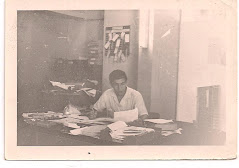


















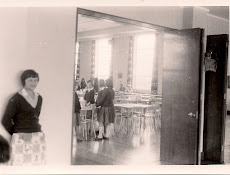




















%5B1%5D.jpg)






































